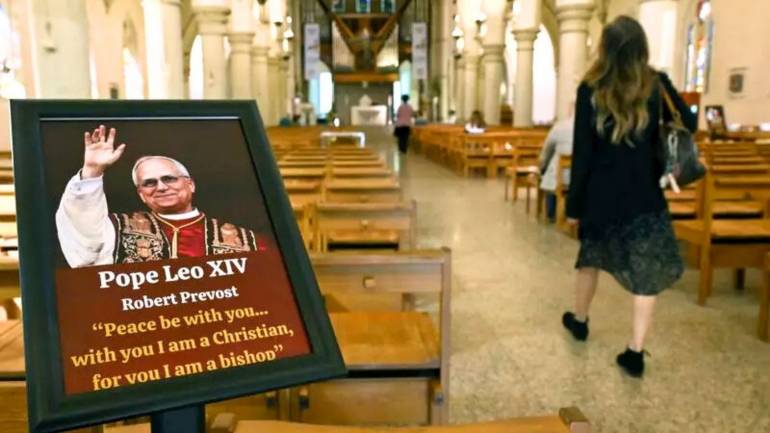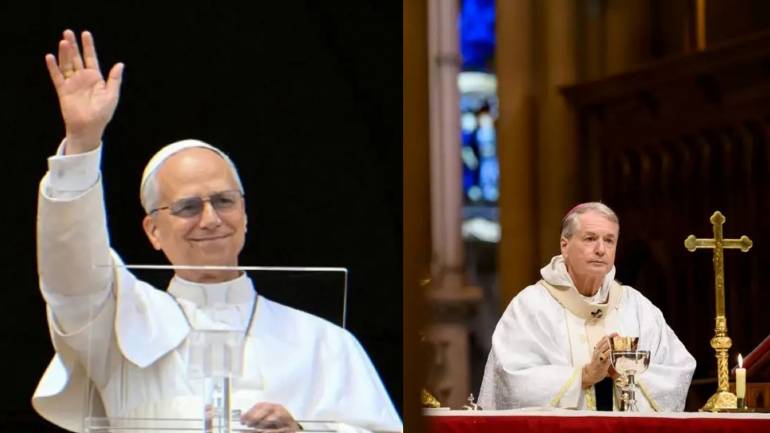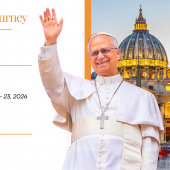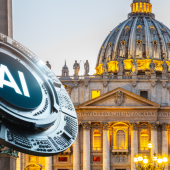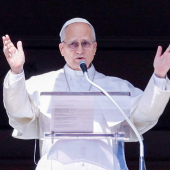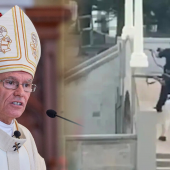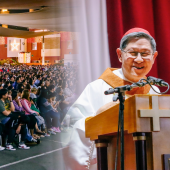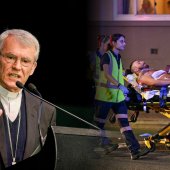Australian Bishops Welcome Pope Leo: A New Era Begins
The bells of cathedrals across Australia rang in harmony with those of St. Peter’s Basilica in Rome on the momentous evening when white smoke billowed above the Sistine Chapel, announcing to the world: Habemus Papam.
The conclave of cardinals had chosen Cardinal Robert Francis Prevost, OSA, as the 268th pope of the Roman Catholic Church. Taking the name Pope Leo XIV, he steps into the shoes of Peter at a time of global uncertainty and ecclesial renewal.
The Australian Catholic Bishops' Conference (ACBC), along with clergy, religious, and laity across the country, welcomed the announcement with joy, reverence, and a deep sense of hope. Their responses reveal a Church ready to walk forward in faith with a new shepherd, whose background as a missionary, theologian, and administrator places him in a unique position to build bridges and renew trust in an evolving Church.
From Cardinal Prevost to Pope Leo XIV
Born in Chicago in 1955, Robert Francis Prevost entered the Order of St. Augustine and began his ministry as a missionary in Peru, where he would spend years walking with the poor and the marginalized. A fluent Spanish speaker and compassionate pastor, Prevost rose in esteem for his combination of pastoral warmth and intellectual clarity. In 2015, Pope Francis appointed him as bishop of Chiclayo, Peru. By 2023, he had been called to Rome to head the powerful Dicastery for Bishops—one of the most influential departments in the Roman Curia.
His deep roots in Latin America, firm grounding in Augustinian spirituality, and experience leading both in the field and at the Vatican made him a surprise but well-respected candidate during the conclave. His election as Pope Leo XIV signals continuity with the pastoral vision of Pope Francis while opening new possibilities for reform and evangelization.
In his first address from the balcony of St. Peter’s Basilica, Pope Leo emphasized themes that echoed around the world: humility, mission, reconciliation, and communion.
“Let us walk together in mercy. Let us rediscover the heart of the Gospel. Let us be the Church that listens, heals, and serves,” he said, before offering his first Urbi et Orbi blessing.
The Response in Australia: Unity, Prayer, and Joy
Within hours of the announcement, the ACBC released a collective statement welcoming the new Holy Father and offering prayers for his pontificate.
“We, the bishops of Australia, rejoice with the universal Church at the election of Pope Leo XIV. His life of service, particularly to the poor and marginalized, inspires us. We assure him of our fraternal support and prayers as he begins his ministry as successor of St. Peter,” said Archbishop Timothy Costelloe SDB, President of the ACBC and Archbishop of Perth.
Archbishop Anthony Fisher, OP, of Sydney also expressed joy, calling Pope Leo a “man of prayer and purpose.”
“His years in Latin America and his deep Augustinian spirituality prepare him well for the many challenges and opportunities of our time. We welcome him as a pastor who understands the joys and sorrows of real people.”
Throughout the country, dioceses marked the election with special liturgies and Holy Hours. Catholic schools held assemblies and lessons on the role of the papacy. Parishes organized rosary vigils and Masses of thanksgiving. Social media platforms lit up with messages of welcome, prayer, and curiosity about the new pontiff’s background and vision.
A Pope Who Knows the Margins
Many Australian bishops were especially moved by Pope Leo’s missionary background. His decades of service in Peru, far from the center of Vatican power, show that he is a pontiff who understands the daily realities of poverty, cultural complexity, and pastoral sensitivity.
Bishop Vincent Long OFM Conv. of Parramatta, himself a former refugee and the first Asian-born bishop in Australia, reflected on the significance of Pope Leo’s pastoral model.
“This is a pope who has lived among the people and led with humility. He represents the kind of church we are called to be—close to the poor, deeply rooted in faith, and open to renewal.”
Bishop Charles Gauci of Darwin noted the resonance of Leo’s missionary ethos with the Australian Church’s call to evangelize the peripheries.
“Here in the Northern Territory, we walk with Aboriginal communities in remote places. Pope Leo knows what it means to journey in simplicity, listening more than speaking.”
For Catholic leaders who minister in culturally diverse dioceses, the pope’s background brings reassurance that their voices will be heard and their realities understood. With growing immigrant Catholic communities in Australia, Pope Leo’s inclusive, dialogical style is considered a timely gift.
A Legacy of Leadership: From Bishops’ Prefect to Global Pastor
As head of the Dicastery for Bishops, Cardinal Prevost was instrumental in shaping the leadership of the global Church. His approach to episcopal appointments emphasized discernment, character, pastoral experience, and a commitment to synodality.
Archbishop Peter A. Comensoli of Melbourne noted:
“Many of us have admired Cardinal Prevost’s quiet wisdom and integrity. He knows what good pastoral leadership looks like, and he fosters it. His election as pope suggests that the Church will continue emphasizing servant leadership and co-responsibility.”
The pope’s background as an Augustinian—part of a religious order known for its communal spirituality and intellectual rigor—also positions him to lead with heart and mind. In a church grappling with doctrinal questions, moral complexity, and the wounds of scandal, his integrity and formation are seen as deeply encouraging.
A Name with Deep Resonance: Why “Leo”?
The choice of the name “Leo” sparked immediate curiosity and historical reflection. Most notably, it recalls Pope Leo XIII, whose encyclical Rerum Novarum laid the foundation for Catholic social teaching in the industrial age. It also evokes Leo I, or Leo the Great, who defended orthodox Christology and helped shape the authority of the papacy.
Australian bishops quickly saw this gesture as a deliberate and hopeful sign.
“Pope Leo XIII brought the Gospel to bear on the social upheavals of his time. I believe Pope Leo XIV will do the same for our time, offering clarity, justice, and compassion in a rapidly changing world,” said Bishop Greg Bennet of Sale.
For some, the name Leo signals courage. For others, it suggests wisdom, reform, and a commitment to both tradition and progress. What is clear is that Pope Leo XIV sees his role as one of guidance, not dominance.
An Australian Church in Transition
The election of a new pope comes at a pivotal time for the Church in Australia. The nation continues to process the legacy of the Royal Commission into Institutional Responses to Child Sexual Abuse. The Plenary Council of 2021–2022 proposed numerous reforms, including expanded roles for women, more profound engagement with First Nations peoples, and more transparent leadership structures.
While the road ahead is complex, Australian bishops view Pope Leo as a partner in the process of healing and reform.
“He understands that holiness must be wedded to accountability,” said Bishop Shane Mackinlay of Sandhurst, who played a leading role in the Plenary Council. “We are excited for his support and wisdom as we implement the council’s recommendations.”
A Global Shepherd with Local Impact
For ordinary Australian Catholics, Pope Leo’s election is not just a Vatican affair. It touches parishes, classrooms, hospitals, and homes. Lay organizations such as Catholic Social Services Australia, Caritas, and the Society of St. Vincent de Paul welcomed the new pope with statements emphasizing his commitment to the poor.
Young people, too, have been particularly responsive. Catholic youth ministries across the country organized social media campaigns, prayer nights, and open forums to explore what the new pope might mean for the future of the Church.
“It’s inspiring to have a pope who’s lived in the trenches,” said Emily Roche, a university chaplaincy coordinator in Brisbane. “We need leadership that connects with the world we live in—social justice, environmental crisis, mental health, and faith.”
Hopes for the Future
Australian bishops are hopeful that Pope Leo will continue Pope Francis’s emphasis on synodality, dialogue, and pastoral conversion. They also look forward to renewed attention to vocations, evangelization, and the spiritual depth of Catholic worship.
Bishop Michael McCarthy of Rockhampton remarked:
“I believe Pope Leo will help us rediscover the joy of the Gospel, not just as a message to be proclaimed, but as a way of life—joyful, sacrificial, communal.”
The next major step will come with the bishops’ ad limina apostolorum visit to Rome, expected in the coming year. It will be an opportunity to meet the new pope, share the spiritual and pastoral needs of the Australian Church, and receive guidance for the journey ahead.
“Do Not Be Afraid to Begin Again.”
Pope Leo’s first homily as Bishop of Rome closed with a quote from St. Augustine, founder of his religious order: “Do not be afraid to begin again. Every day is a new day for love.”
Many Australian bishops resonated with these simple yet profound words, interpreting them as a call to spiritual renewal.
“That’s the heart of it,” said Archbishop Christopher Prowse of Canberra-Goulburn. “We’re not just welcoming a new pope. We’re being invited to start anew—as disciples, as leaders, and as a Church that lives in hope.
Radio Veritas Asia (RVA), a media platform of the Catholic Church, aims to share Christ. RVA started in 1969 as a continental Catholic radio station to serve Asian countries in their respective local language, thus earning the tag “the Voice of Asian Christianity.” Responding to the emerging context, RVA embraced media platforms to connect with the global Asian audience via its 21 language websites and various social media platforms.





